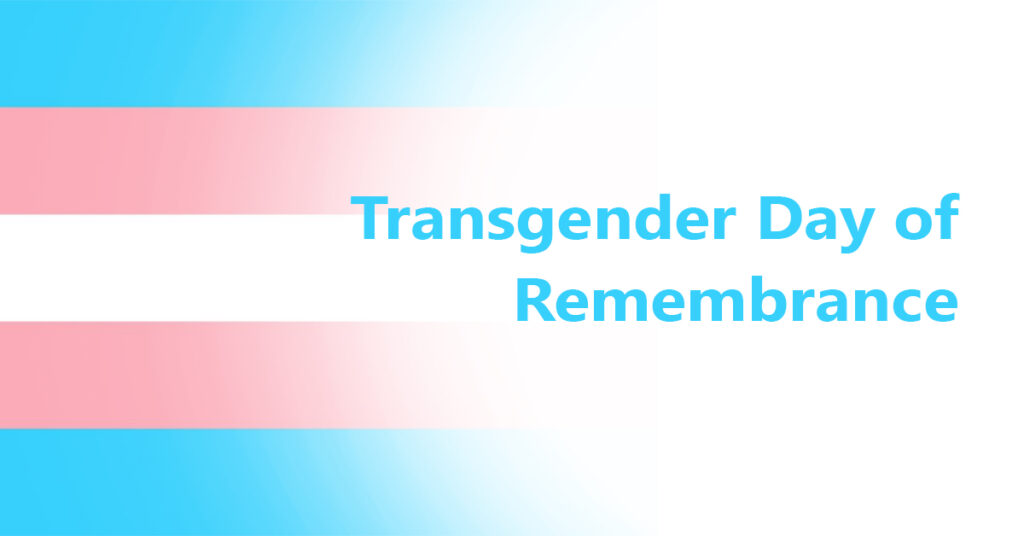by: The JEDI Committee
Today, November 20, 2020, is Transgender Day of Remembrance, a day in which we honor the victims of anti-transgender violence. We cannot ignore the numbers: In the last year alone, 350 trans and gender-diverse people have been killed. Among those victims, 98 percent were trans women or trans feminine people. Of the 28 trans victims in the US, 79 percent were people of color. And of the 11 victims in Europe, 50 percent were migrants. What these numbers and other data tell us is that the vulnerability of gender diverse people in our society is complex and intersectional. We need to make the world safer for trans individuals, and that means not only working to end transphobia, but also working to end racism, misogyny and other forms of violence.
We also cannot ignore what those number don’t tell us: they don’t even begin to quantify other forms of transphobia that gender-diverse people experience, including less-than-lethal violence, bullying, and other forms of aggression, including micro-aggressions. These experiences contribute to high rates of depression and PTSD within the trans community, particularly among youth; a recent study showed that 41.8 percent of non-binary youth had attempted suicide at some point in their life. This terrifying number tells us that we must do better to protect trans and gender diverse members of our community. While Transgender Day of Remembrance is about honoring those who have been murdered in acts of anti-trans violence, it must also be a call to all of us to make our communities not only safer, but truly welcoming to everyone regardless of their gender expression.
So what does this mean for you? If you’re an ally, this means being respectful of pronouns and terminology, being careful not to make assumptions, being respectful and asking trans and gender non-binary people how you can best support them, checking in on the young people in your life and making sure that they know you care for them and their safety, using your cis-privilege to challenge transphobia, and practicing humility by acknowledging when you’ve made a mistake.
If you are transgender, gender non-binary, or questioning, or identify as a member of the LGBTQ+ community, know that you will find welcoming support at Comprehensive Healthcare. For the past couple of years, Comprehensive Healthcare has been working on becoming more aware of the experiences of our LGBTQ+ community members so that we can be more effective clinicians and true supporters and allies. Much of this effort has been focused on additional training and outreach within our agency, but also in the community. Our efforts also focus on making sure the entire process and experience of treatment is a safe and welcoming environment for all.



